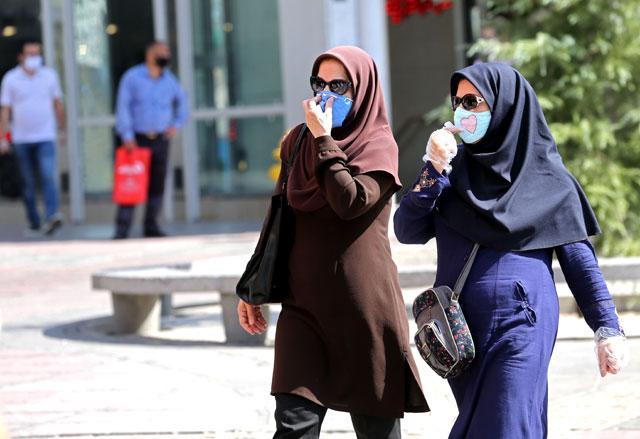- International News
- Web-2020-08-05 | 04:05 pm

Deaths and infections from the novel coronavirus have been on a rising trajectory in the Islamic republic since hitting a months-long low in May.
This has prompted Iran to make wearing masks mandatory in enclosed spaces and reimpose restrictions lifted gradually since April to reopen the economy.
Despite the rule, people without masks can still be seen inside the capitals' shops and banks, and state television often criticises them for doing so.
"In the past 24 hours, new confirmed cases were reported to be 2,751," Health Ministry spokeswoman Sima Sadat Lari said in televised remarks.
The number is the highest since June 5, when the ministry reported 2,886 infections in one day.
The latest count takes the total cases identified in Iran since late February to 314,786, Lari added.
Another 212 people died from the virus during the past 24 hours, bringing the overall toll to 17,617.
Iran's deputy health minister called for those who fail to obey the mask rules to be fined, as the only penalty currently in place is the refusal of service in public places.
"Deterrent methods must naturally be used, one of which is fining those not wearing masks," ISNA news agency quoted Iraj Harirchi as saying.
But those "financially unable to buy masks must be exempted", he added, without elaborating how that could be determined.
Iran has suffered a sharp economic downturn since US President Donald Trump withdrew from a landmark nuclear agreement in 2018 and reimposed crippling sanctions.
The COVID-19 pandemic has exacerbated the situation.
It has seen a drop in non-oil exports compounded by a tumbling currency and runaway inflation, piling new pressure on those already dependent on government cash handouts.
Masks in Iran cost from about 15 US cents for simple surgical ones to 68 cents for multilayered ones with respirators, while the minimum wage is currently $2.6 per day.













